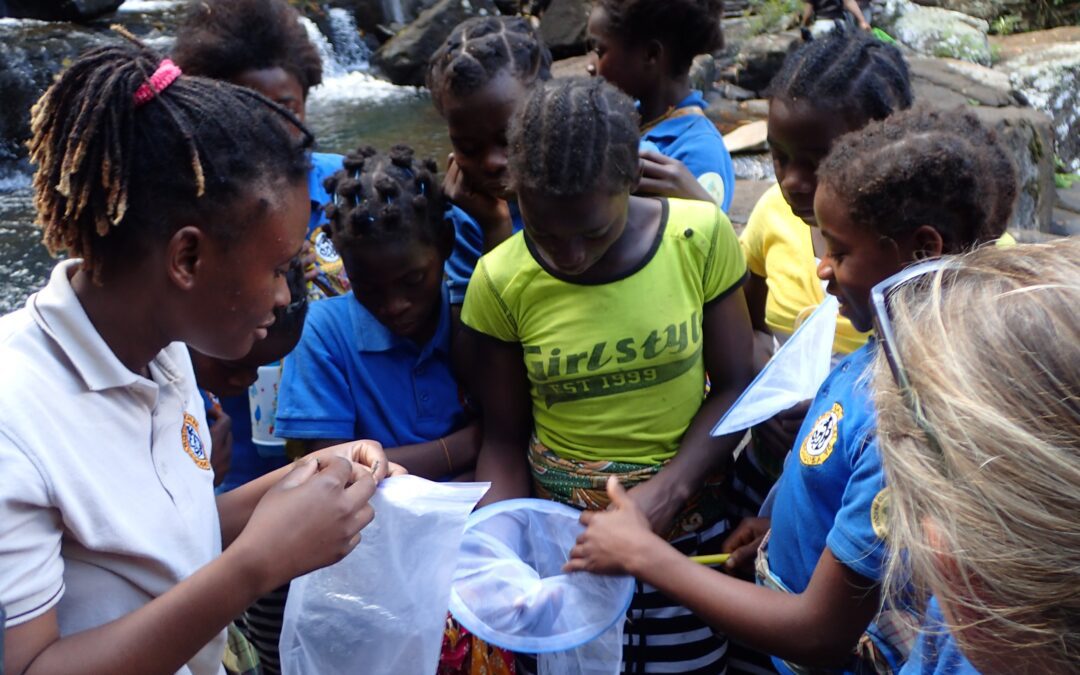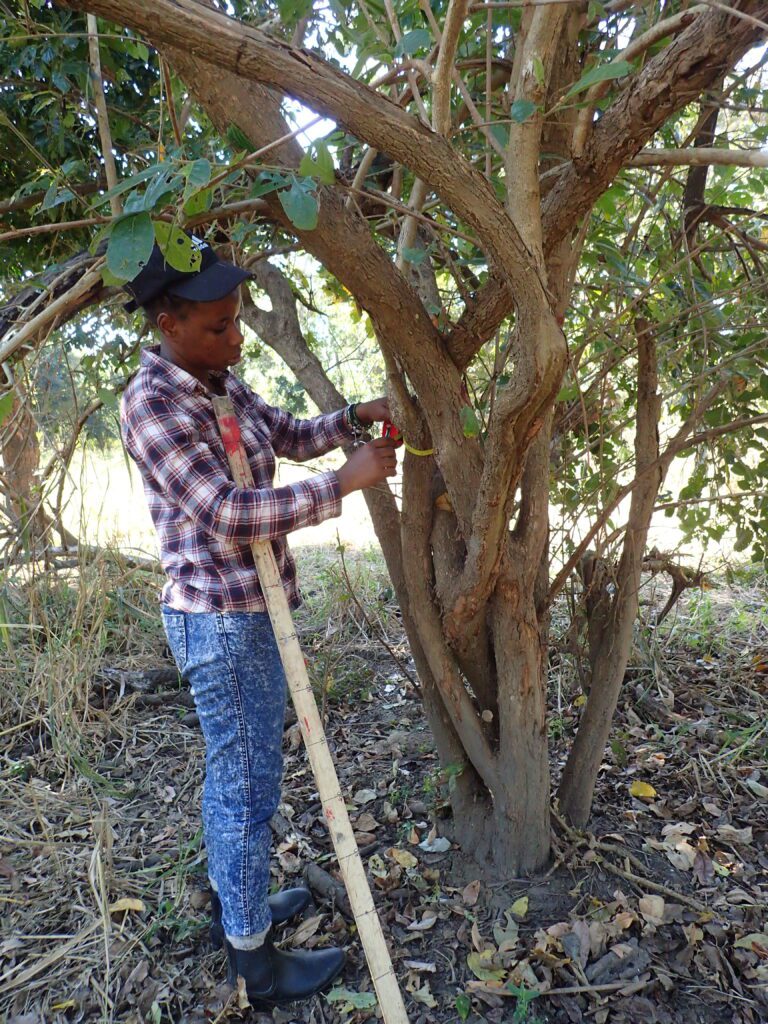Top photo – Norina Vicente teaches children about insects.
Six rising stars from Gorongosa National Park are set to pursue PhDs, thanks to scholarships to Portugal’s top universities. From Mozambique’s first female primatologist to experts in biodiversity and evolution, these scientists are taking conservation to the next level.
Rassina Farassi is Mozambique’s first female primatologist and leads the management of the primatology section for the Gorongosa Paleo Primate project. Norina Vicente is a former research technician for the E.O. Wilson Laboratory. Four more—Amade Real, Jonatá Caminho, Clotilde Nhancale and Domingas Matlombe—are graduates of the Gorongosa Master’s in Conservation Biology Program.
Tara Massad, PhD, works with the program and believes the Park’s and the Gorongosa Restoration Project’s commitment to science education is one of the most productive paths to lasting conservation in Mozambique.
“These scholarships reflect the students’ dedication and talent and highlight Gorongosa National Park’s growing impact on global conservation science,” said Massad. “I have always been impressed with Mozambican students’ genuine desire to learn and to grow. There is no greater reward than to mentor students and researchers who are committed to their education.”
The scholarships will be provided by the Consortium of Schools of Natural Sciences and Biodiversity, a collaborative network of academic institutions focused on research and education related to natural sciences and biodiversity in Portugal.
The universities the researchers and graduates plan to attend include:
~Amade Real (from our third cohort) Biodiversidade, Genética e Evolução, University de Lisboa
~Jonatá Caminho (third cohort) will defer his attendance at Biociências, Coimbra University until 2025.
~Clotilde Nhancale (first cohort) Biociências, Coimbra University
~Domingas Matlombe (second cohort) Biodiversidade, Genética e Evolução, University de Porto
~Rassina Farassi, Biociências, Coimbra University
~Norina Vicente, Biodiversidade, Genética e Evolução, University de Porto
Clotilde Nhancale works on her master’s research project.

